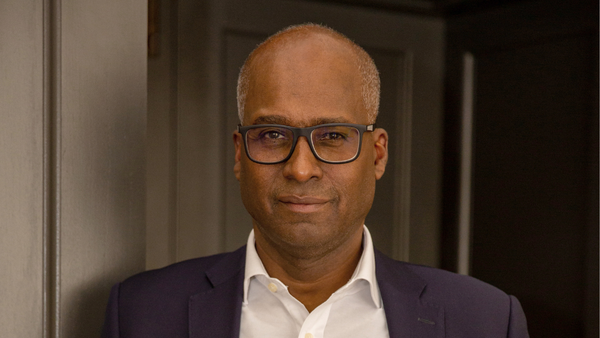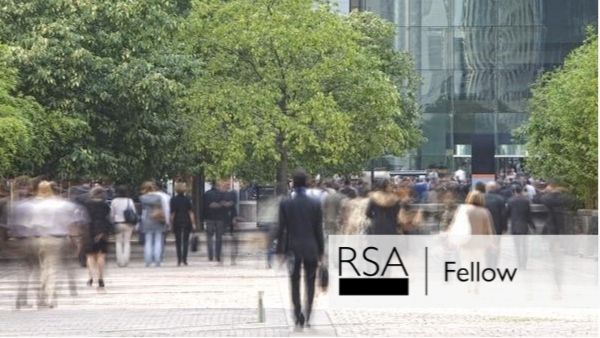Have we created a generation of business managers conditioned not to think and has the drive to centralise impoverished life in so many organisations today? Frank Hore and David Low FRSAs explore these questions and whether changing the behaviour of the centre could help.
“There is a generation of managers in this company who don’t seem capable of thinking for themselves; and I think the problem is one of our own making: we have conditioned our managers to believe that thinking is a dangerous endeavour. We have created zombies out there!”
Our client was a newly appointed CEO, charged to reenergise a flagging concern in the financial services sector, and coming to terms with the resources at his disposal. “It’s not that this has been a heavy handed command-and-control organisation,” he explained. “They haven’t been beaten into submission. It’s simply that all the thinking has always been done for them. We have never given them anything demanding to do.”
Centralisation and standardisation are working mantras in businesses across the globe; and like many others, his company had centralised decision-making long enough ago for many in his team never to have experienced any different way of working. The financial crash, regulation and risk management have all played a part in the drive to centralise; but this drive has a history with its origins in management science back in the last century. It has been accelerated by IT systems, too, and by the push on the part of finance people for internal efficiencies. These shifts impact on both the public sector – for example on UK health services – as much they do on global businesses.
So, here we are today with so many decisions taken centrally in so many organisations that many junior managers are left to fill their business lives sweating the minutiae. There they have been robbed of the opportunity to exercise much in the way of innovative thinking or discretion. Consequently many have felt it safer to keep their heads down, to stick closely to the narrowest definition of their roles. The prospect of generating ideas and pushing for change, they think, might just shake the tree too hard. It would not be expected of them; and it is unlikely to be welcomed.
Suppressing risk-taking naturally enough breeds a cadre of managers both inexperienced in development and speculative initiative, and also fearful of it. “They live their lives in a responsibility vacuum,” said our client, “and are left to fill their day with distraction activity. Just check out what is trending on LinkedIn Plus… the blogs and articles, which demand attention, the things they are reading in 2016: five things never to do in job interviews; five of the biggest mistakes you are making with your shoes… Is this as good as our business thinking gets?”
This is a tough question. Clearly on a personal level – in terms of unrealised potential – this matters a lot. If you take responsibility away from people locally, morale will drop away until they become conditioned to depend on the centre to do their thinking for them (after which they may well need de-programming elsewhere – and lots of support – to win back their confidence to step up to the plate again.)
Organisationally perhaps the most insidious downside is that it can create gaps between ‘the centre’ and the sharp end of the business locally. The centre develops a distorted view of what life is like for the bulk of the organisation. This can encourage senior management to impose inappropriate controls, processes and procedures down the line. Members of staff on the frontline are left in a quandary: to follow the rulebook or bend the rules in the interests of customer service.
Some years ago we encountered an organisation where, despite the best efforts of management, staff at the sharp end did everything they could to meet customer needs, even to the point of breaking the rules, if that is what it took. Senior managers at the centre were so far removed from the frontline that they had a bizarrely simplistic concept of what actually happened there, and so insisted on entirely inappropriate procedures. Staff took the side of the customer, with the complicity of some junior/middle managers.
Of course, this meant that lots of people were expending effort on ‘work-arounds’ (to the rulebook), resources that could have been spent so much more productively. A consequence can be that rule breaking begins to be seen as the ‘normal’ reaction to head office nonsense; this can produce behaviour that could put the business at risk. Who is to say what is acceptable when breaking the rules becomes a norm?
We have seen senior people in group subsidiaries playing this game, too. A country head once griped to us about how clueless his Europe HQ was about his business and explained the lengths he had to go to disguise his operation under a cloak of conformity. “They don’t begin to understand the reality of business here,” he said. “And I’ve got to write ‘a plan’ they’ll sign on to. We know that what we do here works in practice. But we are constantly writing documents to demonstrate that it works in theory!”
These gaps in understanding seldom end well. Organisations are often keener to assign blame than to listen, challenge and compromise; not surprising when gaps and game playing have undermined trust.
So, does centralisation always have to work out like this? Imagine a continuum with classic command and control at one end and 100% participation at the other. Neither extreme on this continuum provides an environment for businesses to flourish. One end facilitates rapid decisions, which are likely to be at odds with the way life is lived at the frontline; and at the other, decisions could take a lifetime to arrive at all.
The key is to recognise that the policies we are pursuing may have created problems worthy of attention. Yet the drive to centralise is almost a given around board tables today; and there is a reluctance to concede that it comes with downsides which are not necessarily resolved by a can-do attitude. The way your organisation reacts to this challenge will reveal a lot about its courage and determination.
Frank and David make up the Service Management Partnership and are management consultants who work closely with general managers across the service sector to find working solutions to sometimes intractable business problems via innovative project work and personal counselling/mentoring activity.
Related articles
-
In Conversation with Don McLaverty
Rachel O'Brien
“If you want to make that difference, you’ve got to get involved and work towards evolving the organisation” Rachel O’Brien speaks to Don McLaverty, outgoing chair of the RSA’s Fellowship Council
-
Democracy at work
Jeremy Fox
Hand the company over to the workers? Madness said the critics. But Jeremy Fox’s exercise in democracy grew the business and made his former employees richer. The only problem? They had to be persuaded to take holidays
-
Leadership towards regenerative lifestyles
Terence Sexton
Leadership psychologist Terence Sexton FRSA says we urgently need a shift to ‘consciousness leadership’ from those who shape our society. Are we ready to make that shift?





Join the discussion
Comments
Please login to post a comment or reply
Don't have an account? Click here to register.
Thanks for these important observations, in my view. As a facilitator and coach specialising in creative, adaptive change, often in large organisations, I increasingly see how people at all levels are often unaware of their own contributions to the status quo they complain about. It is usually easier to go along with the company culture and behaviours that are experienced as lacking vision, driven blindly by a short-term focus and toxic downstream. Groups of individuals may seek to change the norms of thinking and doing, but sooner or later, tend to find themselves swept up in the latest restructuring alla whichever management consultancy is asked to design the job.
So a more fundamental question arises for me: do we - in our teams, organisations, society at large - really want people to think? Or is it more convenient, profitable, politically correct...to encourage people to respond mechanically to events, seeking quick-fix solutions often at the touch of a button? To dedicate their lives to making money and keeping what they have, to search for eternal growth in a physical universe that moves towards the opposite, to blame the outer world for what actually manifests collectively from our inner ones? After all, people who think for themselves and question, let alone change the dysfunctional state of our worlds are harder to have power over.
I wonder then how organisations which are reacting as you describe at the end of your article to the challenges of an increasingly complex, interconnected reality, think they can engage with emerging conditions that are often experienced as difficult, unwanted and intimidating. Can we really continue to ignore the deeper patterns at play, both inside and out, that are creating the reality we experience? And I haven't even mentioned the potential that is Deep Mind...